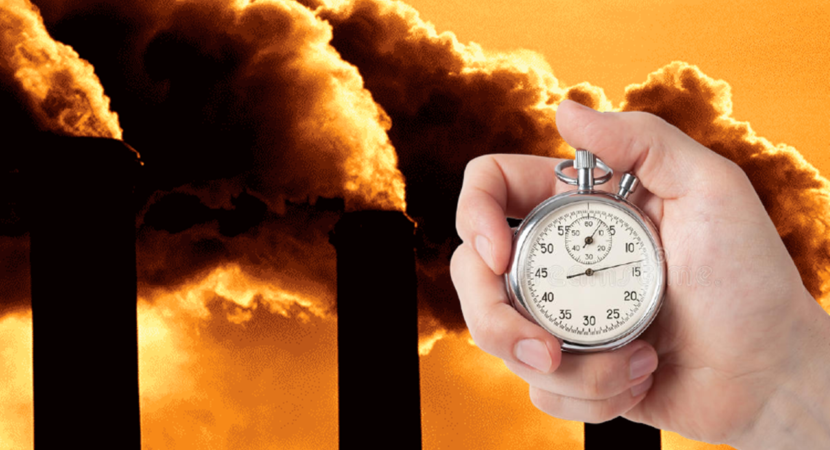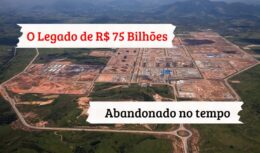
Extreme cold, heat waves, advancing seas. Endangered lives and collapsing economy. What could be worse than these possible scenarios that just imagining already show how tragic they are? What looks like scenes from an end of the world movie is actually where humanity is heading, according to the UN.
The announcement of a “climate catastrophe” was made by the British minister and in charge of the 26th United Nations Conference on Climate Change (COP26), Alok Sharma, as a last warning. The arrival of the account of years of dependence on fossil fuels like oil and gas. Despite several alternatives such as renewable energy, such as solar and wind energy.
Read more
- UN chooses Brazil to lead global debate on energy
- Oil reigns in Brazil: rich in natural resources, the country wants to double oil production to become the fifth largest global exporter, going against the grain of the world, which is trying to eliminate fossil fuels in the energy transition
COP26 is an annual meeting. In 2021 it starts on November 197st). And it is part of the United Nations Framework Convention on Climate Change, bringing together XNUMX nations to discuss climate change and how countries intend to combat it.
The world only has until 2030 to reduce dependence on fossil fuels
In September 2015, representatives of the 193 member countries of the UN met in New York to adopt the document “Transforming Our World: The 2030 Agenda for Sustainable Development” (A/70/L.1). Nations have committed to adopt practices regarding sustainable development without fossil fuels.
Despite the incredulity of specialists in the oil and gas sector, the goal is to reduce dependence on fossils in all sectors of the economy, as fossil fuels are the main cause of global warming.
For Alok Sharma, saying that the planet is on the verge of a climate catastrophe is that “there is no other word for it” and that COP26, which will take place in Scotland, would be among the last chances to limit global warming and save lives. A interview with the British newspaper The Observer.
Temperature continues to rise and accelerates climate catastrophe
Still according to Alok Sharma, one of the leaders of the UN, announcing a climate catastrophe is, therefore, the strongest warning that human behavior and lack of practices to adopt renewable energies are accelerating global warming in a worrying way. “We cannot wait two years, five years, 10 years. This is the moment, ”he commented.
Even with the pandemic, there was an average temperature increase of 1,25ºC compared to the pre-industrial era, the highest ever recorded. The year 2020 had already been the hottest in history alongside 2016, according to the Earth Observation Program of the European Union.
According to the UN, the planet's average temperature in the period between 2021 and 2025 is on track to become the highest since the 2016-2020 five-year period.
The study, which gathers data from the main climate projection models in the world, says that the probability that the average of the next five years will be higher than that of the last five is already 80%.
In Brazil, deforestation accumulated between August 2020 and July 2021 in the Amazon is already the third largest in the historical series, which started in 2015, according to the National Institute for Space Research (Inpe), linked to the Ministry of Science.
The month of July ended with 1.417 km2 of deforestation in the Amazon. Pará and Amazonas occupy first and second place in this sad ranking among the most affected states, with 498 km2 and 402 km2, respectively.
The relationship between deforestation and drought and increased dependence on fossil fuels
Brazil faces the biggest water crisis of the last 90 years. The drought that affects the reservoirs that produce electricity has to do with the felling of trees in the Amazon rainforest.
The fewer trees in the process of absorbing rain from the Atlantic and emitting moisture for precipitation, there is naturally a lack of clouds loaded with rain to supply the reservoirs. In other words, human beings rarely adopt solar and wind energy and still cause damage to nature.
So that there is no blackout, hydroelectric plants have to be activated to supply energy to the country. The problem is that they need fossil fuels to function. Dependence on oil continues to be relevant. And so we have to reflect: is it possible to zero the emission of polluting gases by 2030 or is climate catastrophe more certain to happen?













I already have experience but...
I would like to have an opportunity to…
The truth is, after the year…
As the President of VOLKS said in a…
All Brazilian Niobium stolen like slag…
(These cables not only support the receivers…
...if the plates work...
Good news